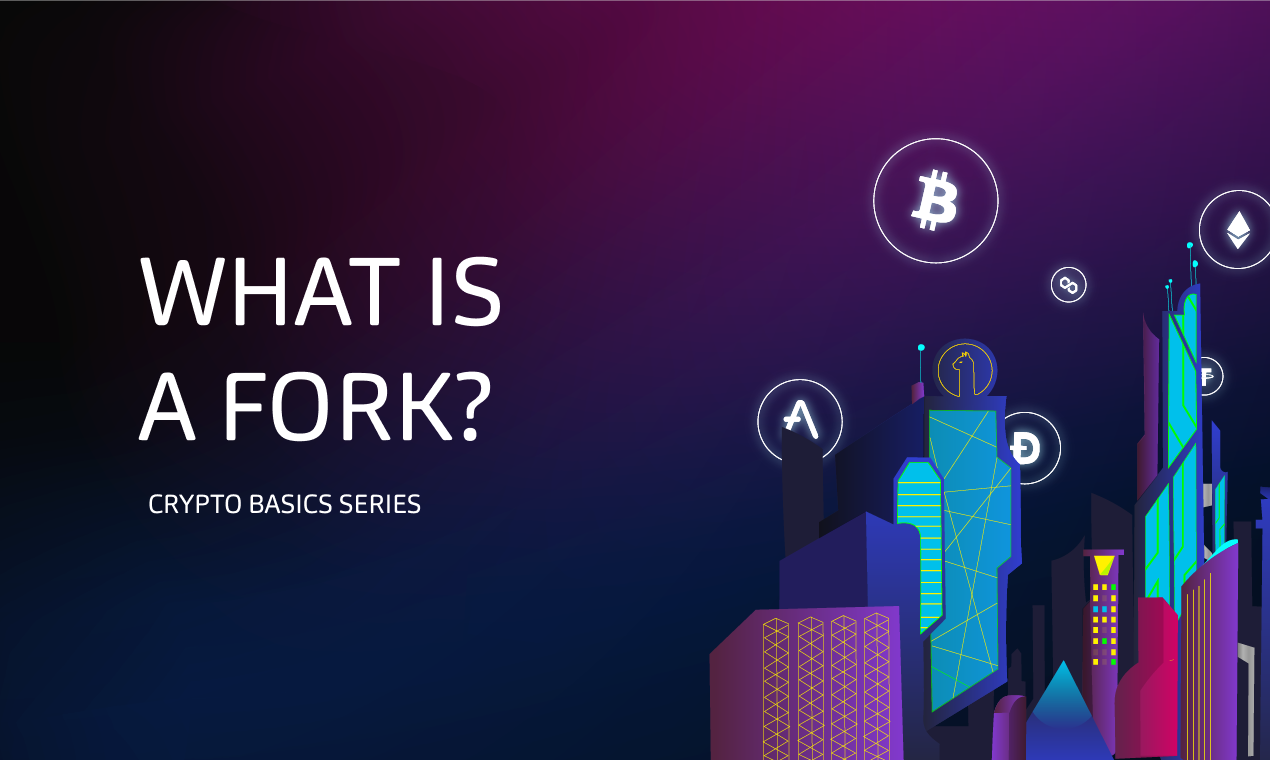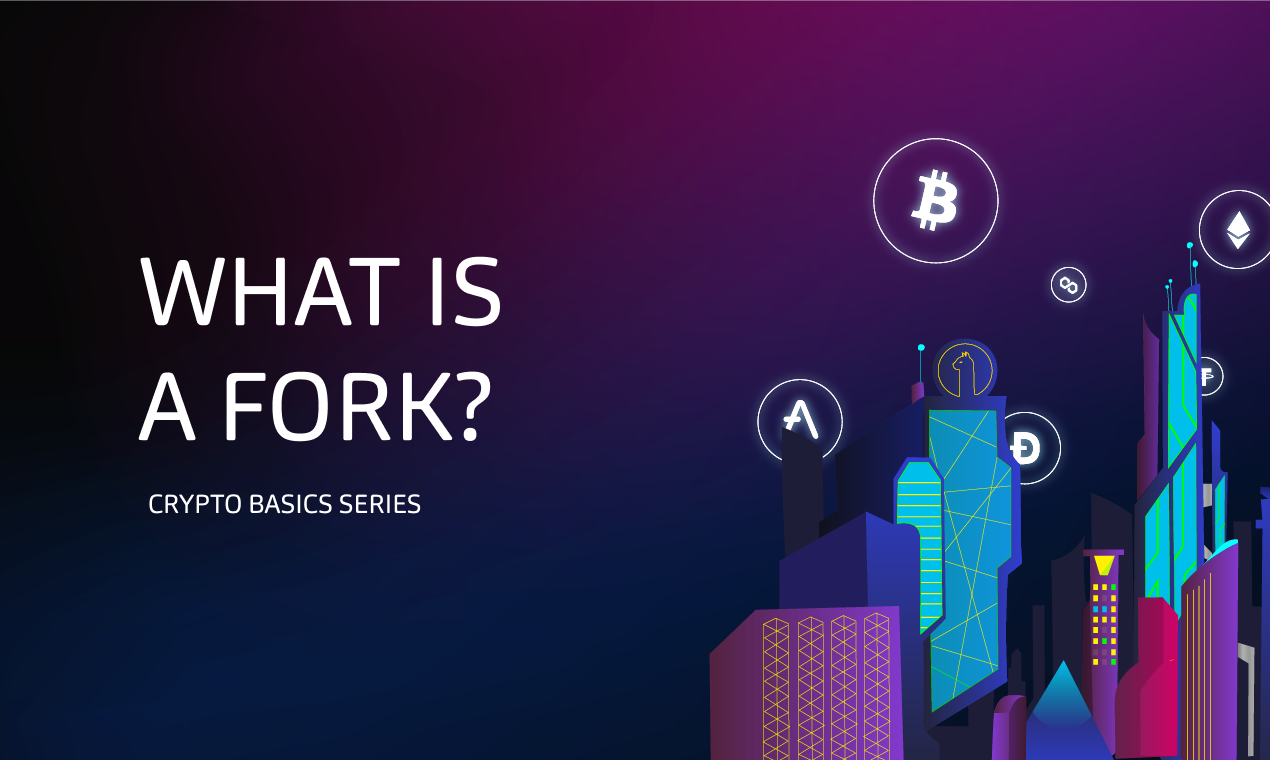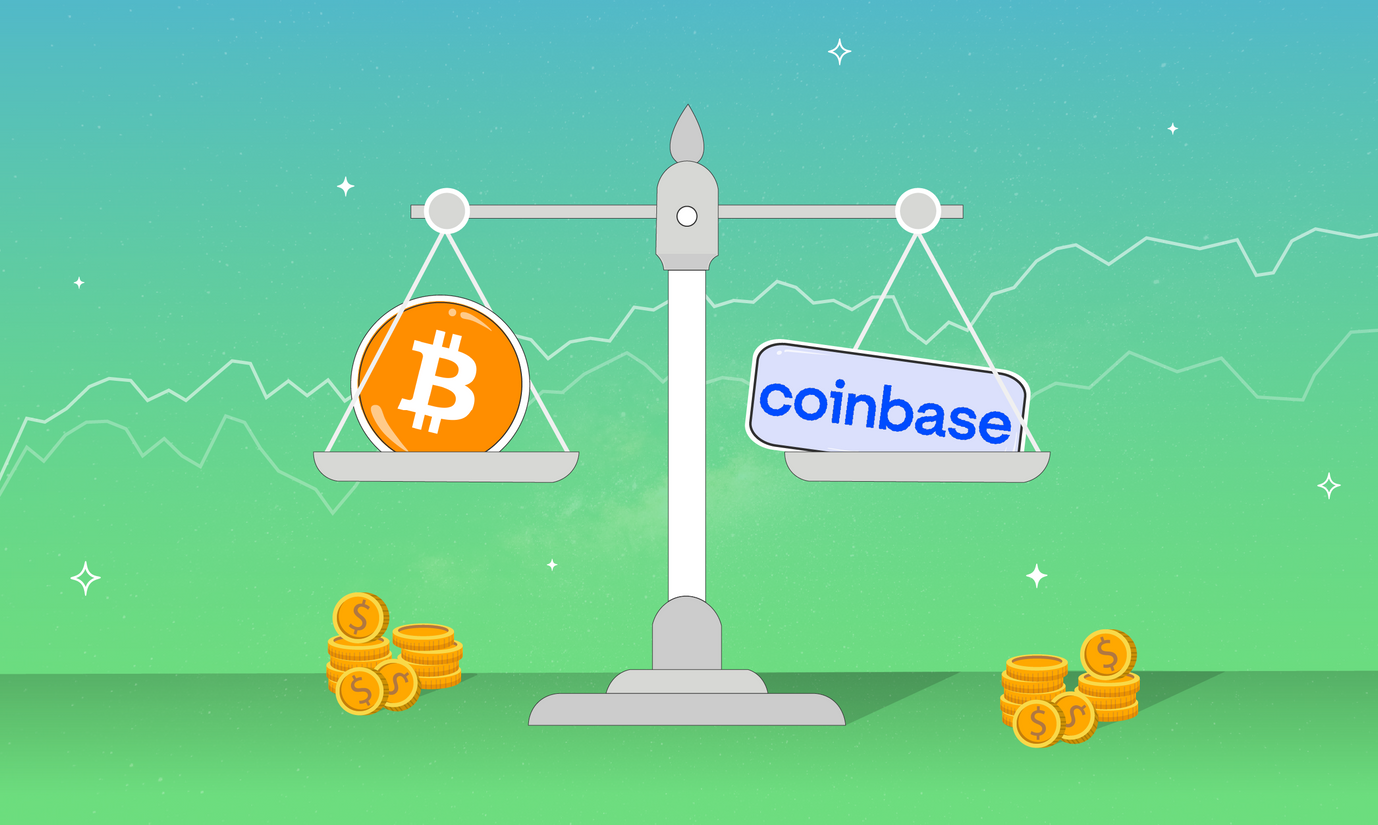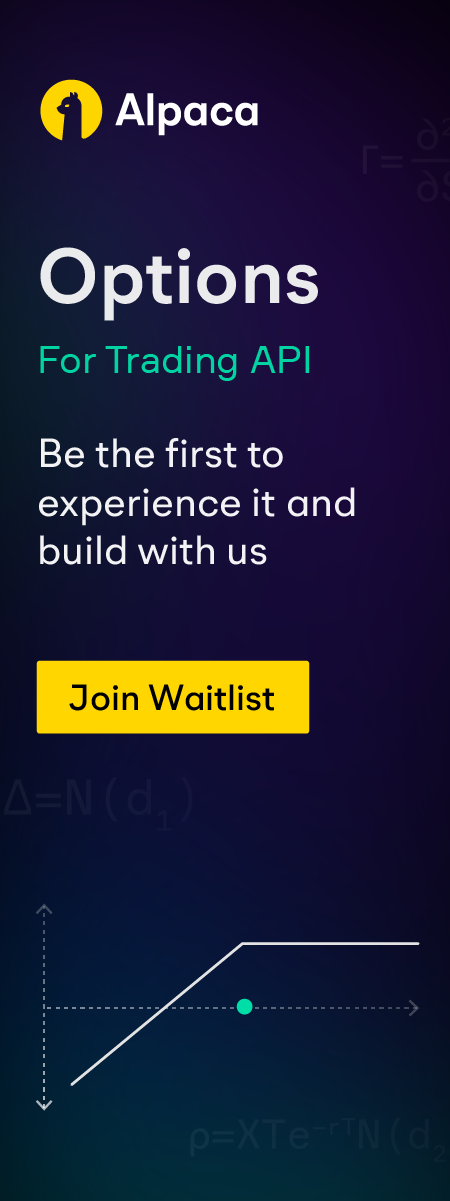What is a fork?


In the crypto world, a fork is a change in protocol often used as a system upgrade or to initiate a chain split. The change in the blockchain system is needed to improve performance, enhance security, and include better features.
What are the different types of forks?
Blockchain works on the principle of decentralization. It is an open-source system in which anyone can contribute to participating in the network and even improving the technology. 1 This does not mean that any new code can just be written and deployed into the network however; there are communities that need to approve code before it goes live on a network. Depending on the degree of code changes made, a fork may be one of two types:
- Soft fork: The changes to the existing blockchain are not very radical, and the network maintains its inherent structure. This type of fork is created to bring about minor upgrades in the software. If all the nodes are upgraded, the nodes will work in unison after the implementation of the soft fork.
- Hard fork: A hard fork is similar to creating a new path using the existing blockchain. The old nodes are no longer part of the new blockchain created. Historical hard forks have been used to develop new cryptocurrencies using existing code.
Forks are essential and have led to the creation of a wide array of new cryptos. By simply leveraging existing technology, the time dedicated to creating new forks is generally considerably less.
Example
Many new blockchain platforms have been derived from Bitcoin. Bitcoin Cash is an example of a hard fork being implemented on Bitcoin to create a new network and asset.
References
1. https://www.cmcmarkets.com/en/learn-cryptocurrencies/what-is-a-blockchain-fork CMC Markets.
Please note that this article is for informational purposes only. Actual crypto prices may vary depending on the market price at that particular time. Alpaca Crypto LLC does not recommend any specific cryptocurrencies.
Cryptocurrency is highly speculative in nature, involves a high degree of risks, such as volatile market price swings, market manipulation, flash crashes, and cybersecurity risks. Cryptocurrency is not regulated or is lightly regulated in most countries. Cryptocurrency trading can lead to large, immediate and permanent loss of financial value. You should have appropriate knowledge and experience before engaging in cryptocurrency trading. For additional information please click here.
Cryptocurrency services are made available by Alpaca Crypto LLC ("Alpaca Crypto"), a FinCEN registered money services business (NMLS # 2160858), and a wholly-owned subsidiary of AlpacaDB, Inc. Alpaca Crypto is not a member of SIPC or FINRA. Cryptocurrencies are not stocks and your cryptocurrency investments are not protected by either FDIC or SIPC. Please see the Disclosure Library for more information.
This is not an offer, solicitation of an offer, or advice to buy or sell cryptocurrencies, or open a cryptocurrency account in any jurisdiction where Alpaca Crypto is not registered or licensed, as applicable.








